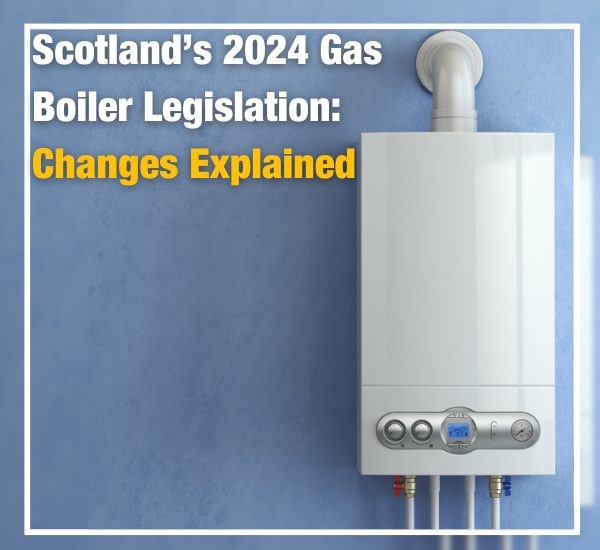
How the electrification of heating is driving Net Zero goals and changing an industry
By Steve Alldritt, Technical Director, City Plumbing
The UK has just taken the next step in the electrification of home heating, thanks to the new building regulations which came into force on June 2023. It’s an essential time for installers and developers to stay updated with the latest building regulations - so we’ve put together a handy guide to keep you up-to-date with the June 2023 building regulation changes.
The race for the UK to achieve Net Zero by 2050, a target which is enshrined in law, heavily depends on what happens in the home heating industry - with heat pumps on the front line.
To get there, the country requires a 100% Co2 reduction from 1990 levels and a complete change in the way we heat our homes.
The target is 600,000 heat pumps installed every year by 2028, one million a year by 2030, and a phasing out of sales of gas boilers after 2035 (a process and date which is currently under consultation).
Heat pumps are key because they are 400% efficient in turning electricity into heat, delivering 4 kilowatts of heat from every kilowatt of power used. Compare that to a gas boiler, which delivers 92%. This delivers significant carbon savings.
What has Changed for the June 2023 Building Regulations?
New building regulations have come into play as we travel towards the Future Homes Standard, which will ban new build homes from utilising a fossil fuel heat source from 2025.
We haven’t reached that moment yet, but rules are changing in preparation.
These include:
Part L Regulations
The biggest impact for home heating comes from a regulation that new build dwellings must now be designed for a maximum flow temperature of 55 degrees, rather than 70 degrees, if you have a boiler going in.
This is to ensure that heat emitter and pipe sizes are correct if the homeowner wants to plug in a heat pump in future.
What does that mean for installers and housing developers?
1) Larger radiators
If you were putting a radiator system into a house prior to the building regulation changes, calculations were based on a boiling water temperature system, with radiators that are hot to the touch. In many new builds, with high-level insulation, it meant very small radiators being installed. But these are not suitable for a heat pump.
Now you will need to install larger radiators, with boilers running at a lower temperature, allowing the homeowner to switch to a heat pump in future more easily.
2) Finding space for cylinder cupboards
Another consideration is that many regional and national developers have designed-out airing cupboards, or cylinder cupboards, in recent times - because they weren’t needed with a combi-boiler.
Heat pumps require a cylinder, so there’s a need to re-design housing stock to take into account a future switch.
3) Improved insulation
Fabric requirements have been upgraded by 30% in the new regulations. This means developers must beef up insulation standards, to ensure lower heat loss. This may also impact heat calculations.

Part F Regulations
Ventilation
This part of the regulations outlaws the use of single-point bathroom fans, which are sealed boxes and don’t provide the air movement you need with a heat pump.
They are to be replaced with centralised mechanical extract ventilation or ventilation heat recovery.
Part O Regulations
Overheating
New-build houses are almost like sealed boxes that don’t allow heat to leave. This often leads to overheating upstairs. So, how do developers counteract that?
This is a dilemma which now needs addressing. Specialist glazing that deflects sunlight, or overhangs over windows that create shading are example solutions.

What do New Building Regulations Mean for Developers?
The bottom line is that the electrification of heating is on its way - and now is the time to react.
At City Plumbing we’ve seen a significant rise in demand for heat pumps from developers, and we’re supporting them with trial sites and rollouts as they begin to adjust to the new direction of travel.
In addition, there are already planning restraints placed on some projects by planners, which means heat pumps are going in early.
In the meantime, gas boilers are still being installed on many sites. But these latest regulations exist to prepare the industry for what lies ahead in 2025 and beyond.
Looking Ahead to 2025
The year 2025 is a big one on the horizon for home heating – and it’s even earlier in Scotland, as their regulations are changing in 2024.
In both cases, by 1st January that year; from the moment the first spade goes into the ground, every newbuild home will not be allowed to utilise a fossil fuel heat source. That means an electric boiler, or a heat pump, will be required instead.
What do new building regulations mean for installers?
The first challenge is that many installers are not yet trained to install heat pumps. So, now is the time to put that right.
In England, the Boiler Upgrade Scheme allows homeowners to claim significant grants through their installer to reduce the cost of heat pump installation. But it can only be claimed if installers are trained and certified by the MCS.
Another issue is the need for advice as installers begin to embrace new technologies.
Every project is likely to be different, regardless of whether it’s a new build or a retrofit. Different houses will require different solutions if a heat pump is going to provide the heat that homeowners require.
What’s the best advice for installers?
It’s time to embrace change.
There are installers who have engaged but there are also many who have tried to put it to the back of their minds.
The big message is that if you don’t engage now, it will impact your business in the future and allow competitors to steal a march - and perhaps even take your customer base
Installers should seek advice, get trained and change the way they think about their business to embrace new technologies.
At a recent seminar, we asked an audience of installers how many were installing heat pumps - and a fair few hands were raised.
But when we asked if their customers were asking about heat pumps, almost all the hands went up. That’s a big change and it is only going to escalate.
Homeowners are interested. They want to make their homes as energy efficient as possible and are engaged in the debate about reaching Net Zero.
What are the key things to think about when installing heat pumps?
When installing heat pumps, Insulation is key - even before choosing the best products for your heat pump installation.
Homes need to be ready for a heat pump and that means being well insulated.
The first step is to fill cavities, the second to install good upgraded double glazing and the third to ensure there is a minimum of 300mm insulation in the roof.
New building regulations: How to get help
At City Plumbing, we are here to help make those insulation and heating calculation surveys on your behalf.
And we are driving the conversation about heat pumps online, on social media, through our energy efficiency experts in branch and through seminars and talks.
- We have a hotline to contact our Energy Efficiency experts at City Plumbing on 0330 016 8850
- You can email us at Energy Efficiency at City Plumbing on energyefficiency@cityplumbing.co.uk
- You can talk to us in branch - find your local branch here cityplumbing.co.uk
- We have a team answering questions and producing more than 80 designs a day for heat pump installations
- You can book heat pump training through our website: https://eecityplumbing.co.uk/
The electrification of heat and the race to Net Zero are building momentum – and they aren’t going away.
It’s time for installers to grasp the opportunity and for housing developers and Social Housing Associations to be ahead of the game.
Other articles

Don't Get Caught Out: New Ventilation Regulations
19 Jun 2023 ・ 8 Mins

Scotland’s 2024 Gas Boiler Legislation Changes Explained
20 Jul 2023 ・ 4 mins

Solar Recycling Scheme - Everything you need to know
27 Jul 2023 ・ 5 mins

Electric Vehicle Charger Installation Best Practices
26 Jun 2023 ・ 5 mins




